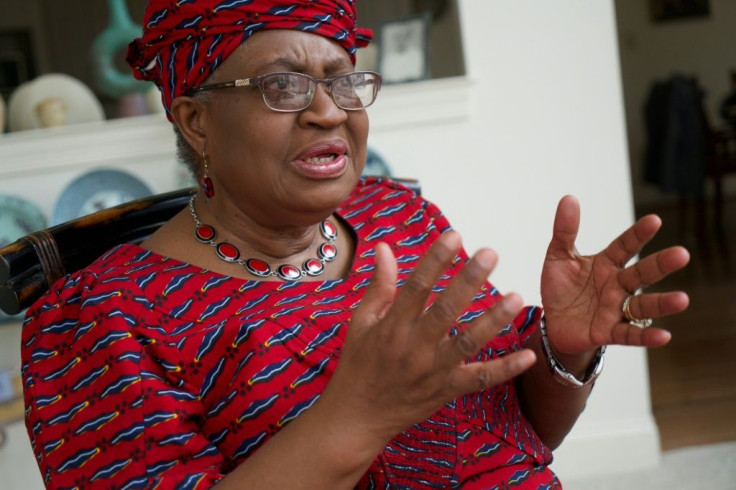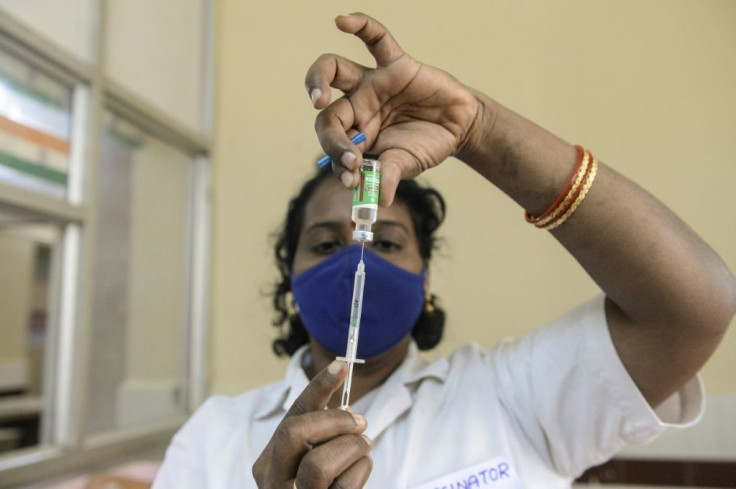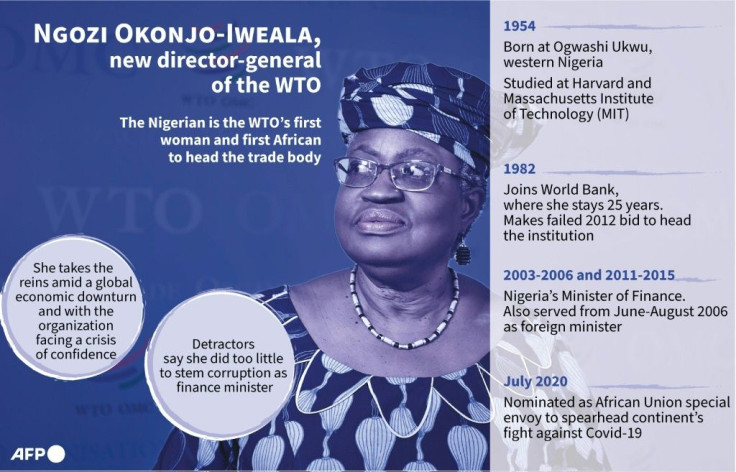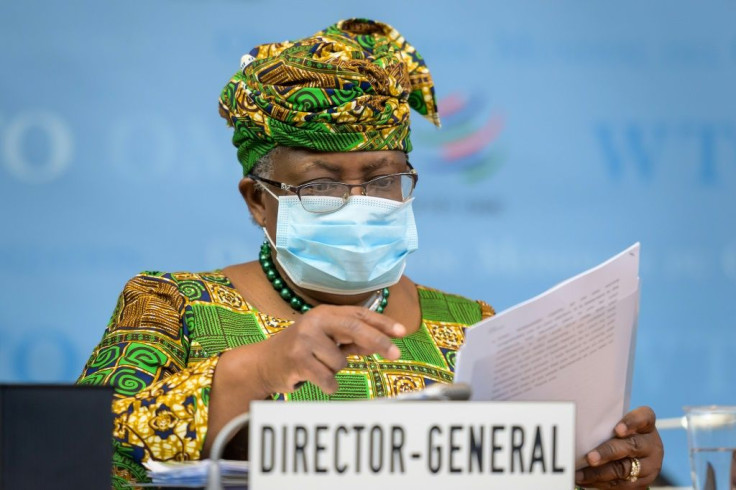Hope For New Momentum As Ngozi Takes WTO Reins
Ngozi Okonjo-Iweala took the reins of the World Trade Organization Monday with a daunting to-do list, not least tackling the global economic crisis sparked by the pandemic.
The former Nigerian finance and foreign minister, the first woman and the first African ever to lead the WTO, is also hoping to kickstart long-blocked trade negotiations.
"I am coming into one of the most important institutions in the world and we have a lot of work to do," the 66-year-old told journalists as she arrived for her first day on the job in Geneva.
"I feel ready to go."

Known as Dr. Ngozi, the development economist has hit the ground running, taking the helm of the global trade body as it kicks off its annual General Council meeting to discuss a range of pressing matters.
A major issue to be discussed during the two-day meeting is a controversial push for the WTO to waive intellectual property rights for Covid-19 vaccines.

Delegates have at least been able to agree a date for the WTO's next ministerial conference, which was scheduled for last year but postponed due to the pandemic. It is now set to be held in Geneva from November 29.
The diplomats are also debating how to breathe life into international negotiations on fishery subsidies that have been blocked for two decades -- an issue that Ngozi described as "one of my top priorities".
"Twenty years is enough," she said, standing next to an ice sculpture of a fish that she was inaugurating in front of WTO headquarters.
"Overfishing and overcapacity and illegal fishing is something that damages sustainability."

Ngozi takes the helm after the WTO was left adrift for six months following the sudden departure of Brazilian career diplomat Roberto Azevedo last August, a year ahead of schedule.
Ngozi became the clear favourite last November but her appointment was delayed by former US president Donald Trump who blocked her nomination, favouring South Korea's candidate.
The arrival of Trump's successor Joe Biden made it possible for her to receive the consensus backing required to end the impasse.
Ngozi, who spent 25 years at the World Bank, was finally anointed by the WTO's 164 members on February 15.

The fact that the WTO will now be led by an African woman has been hailed by many as overdue progress.
Ngozi has meanwhile already had to deal with what has been described as a "sexist and racist" reaction to her landing the job, with a Swiss paper forced to apologise after highlighting her status as a grandmother over her professional credentials in a headline about her appointment.
"We need to call out this behaviour when it happens," Ngozi said in a tweet Monday, decrying "the stereotypes women face when they take on leadership positions".
Trade diplomats have pointed to Ngozi's vast experience and broad skill-set, with observers voicing hope that she will inject much-needed energy into the WTO -- something she also appears keen to do.
"The WTO is too important to allow it to be slowed down, paralysed and moribund," she told AFP a day after her nomination last month.
Others however stress she has little wiggle room to make dramatic changes, given that WTO decisions are made by member states -- and only when they can reach consensus.
One of the top issues facing the ongoing General Council are the calls led by India and South Africa to waive intellectual property rights for Covid-19 vaccines -- a notion fiercely rejected by pharmaceutical giants and their host countries.
In a likely bid to avoid a row on day one, Ngozi has called for flexibility, encouraging voluntary licensing agreements, such as the one agreed between AstraZeneca and the Serum Institute of India, whereby the SII factory manufactures the pharmaceutical giant's Covid-19 vaccines.
The Ottawa Group, which brings together the EU and 12 countries including Brazil, Canada and Switzerland, will meanwhile demand that countries commit not to hindering the flow of medical goods during the pandemic, and removing customs duties on those considered essential.
The Appellate Body, sometimes called the supreme court of world trade, ground to a halt in 2019 after years of relentless US opposition.
The United States, along with European countries and Canada, also want an overhaul at the WTO, believing it has not responded correctly to the trade distortions caused by China.
© Copyright AFP 2024. All rights reserved.





















